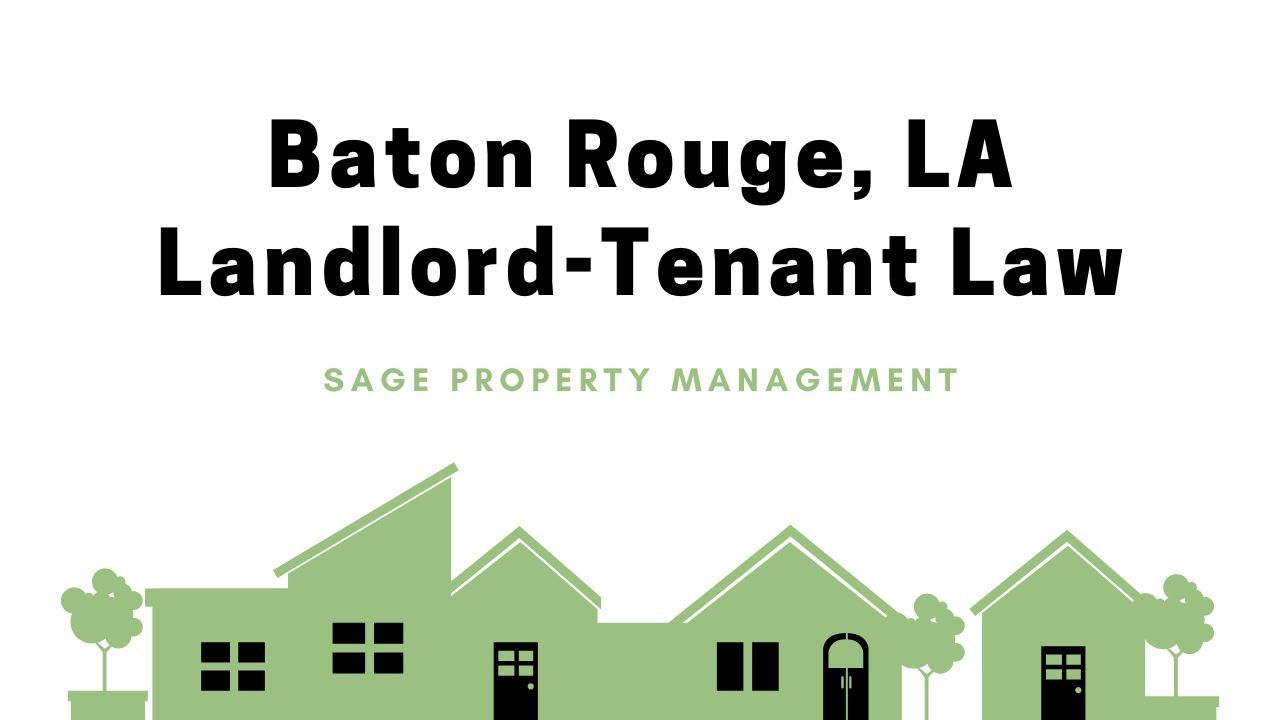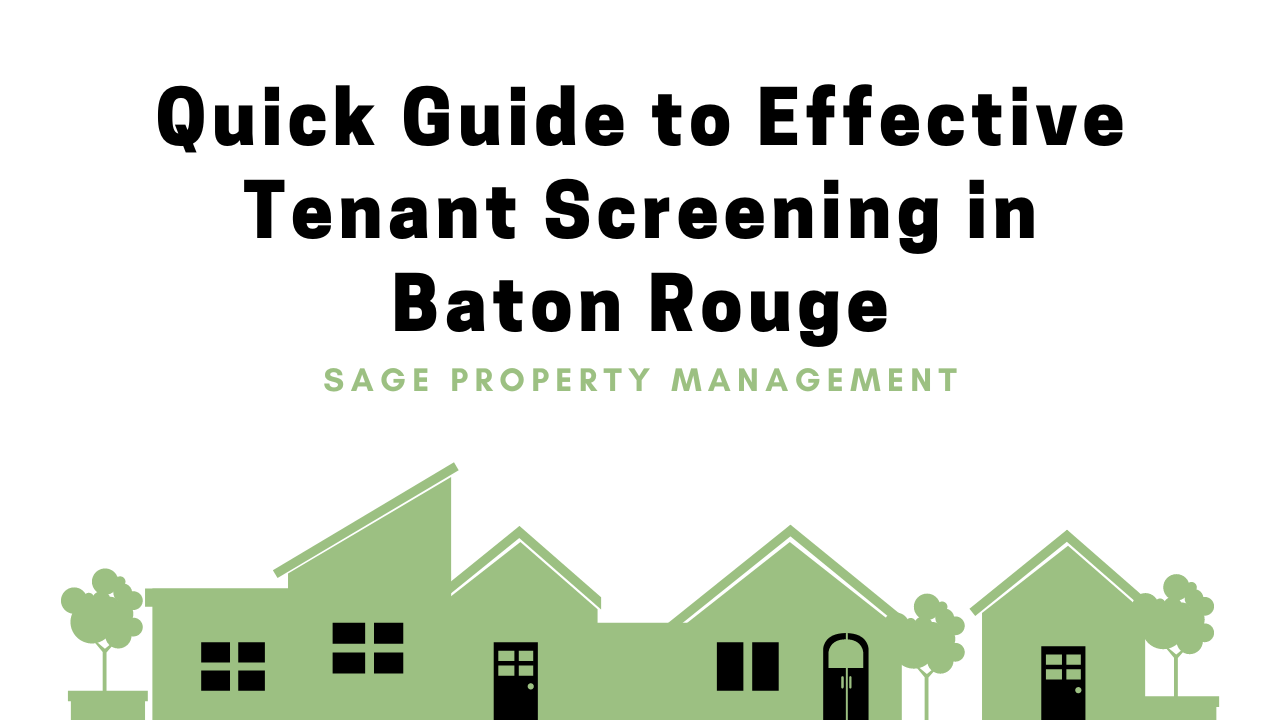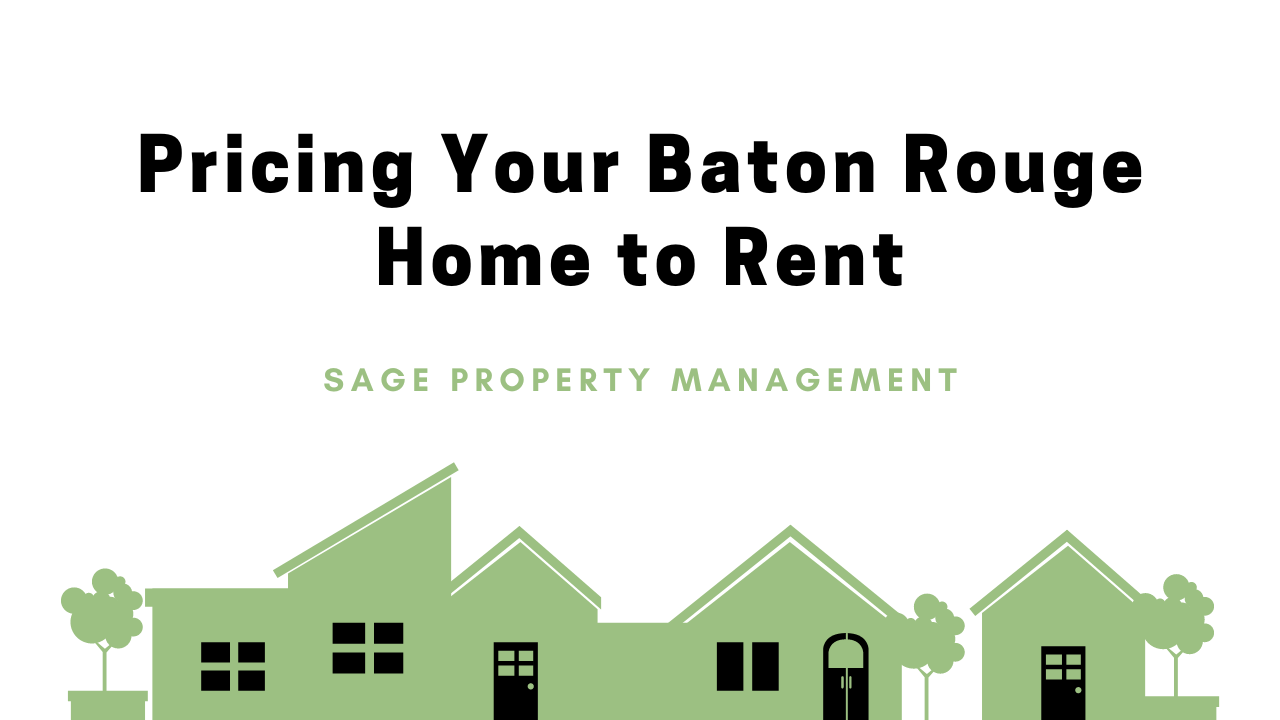Louisiana Rental Laws - An Overview of Landlord-Tenant Rights in Baton Rouge

Louisiana landlord-tenant law is a set of legal guidelines that govern the relationship between landlords and tenants in Louisiana.
As a landlord in Louisiana, it is essential to have an understanding of the state's landlord-tenant laws to protect your rights and interests. These laws cover many topics, including lease agreements,
security deposits, rent increases, and evictions.
By familiarizing yourself with the Louisiana landlord-tenant laws, you can ensure that you are operating within the bounds of the law and taking the necessary steps to protect your rental and your tenant. Keep reading if you want to learn more about it.
Landlord Responsibilities in Louisiana
- As a landlord in Louisiana, you're responsible for ensuring your rental is in a habitable condition, which means keeping it clean, safe, and comfortable for your tenant.
- When your tenant request repairs, the property owner must respond promptly or immediately if there is an emergency that requires immediate attention.
- If a landlord fails to make requested repairs, your tenant can make the repairs themselves and deduct the cost from future rental payments, but only if you've been adequately notified and have yet to act.
- While there's no specific timeframe for repairs in Louisiana, you're expected to make them in a reasonable amount of time to ensure your property remains habitable for your tenant.
- Treat all tenants equally, without discrimination, based on their race, religion, gender, or other protected characteristics under the federal Fair Housing Act.

Tenant Responsibilities in Louisiana
- Tenant must comply with all laws and regulations that affect the health and safety of the building. This includes fire safety, sanitation, and building codes.
- Tenants must keep the dwelling unit clean and free from hazards that may cause injury or harm to anyone. This includes removing tripping hazards, fixing broken appliances, and cleaning up spills or messes.
- Dispose of waste properly. It's a tenant’s responsibility to dispose of all rubbish, garbage, and other waste cleanly and safely.
- Tenants must return the rental unit to the same condition it was at the start of their tenancy, minus normal wear and tear.
Leases and Rental Agreements in Louisiana
A lease or rental agreement must be in writing in Louisiana if the lease term is one year or longer. The agreement must include the following information:
- Names of the landlord and tenant(s).
- Rental property address.
- Monthly rent amount and due date.
- Security deposit amount and terms of use.
- Length of the lease term.
- Notice required for lease termination.
- Any rules or regulations that apply to the property.
Security Deposits in Louisiana
Some of the critical points about security deposits in Louisiana are as follows:
- Under Louisiana law, there is no standard limit to how much a landlord can charge for a security deposit. However, a reasonable security deposit should be at most two months' rent unless the deposit is otherwise specified in the lease agreement.
- In Louisiana, landlords must return the security deposit within one month after the tenant has moved out.

- If the landlord fails to return the security deposit within one month, they may be liable for twice the deposit amount.
- A landlord in Louisiana cannot use a tenant's security deposit for some things, like cleaning what is considered normal wear and tear. The only time the landlord can use a tenant's security deposit is when the tenant has caused damage to the property beyond normal wear and tear or failed to pay rent.
Evictions in Louisiana
According to Louisiana landlord-tenant law, landlords have the right to evict a tenant for any of the following reasons.
Nonpayment of Rent
If a tenant miss a rent payment, the landlord can send the tenant a 5 Day Notice to Pay. The landlord can file an eviction if the tenant owes unpaid rent five days or more past the deadline.
Lease Violation
If a tenant violate any part of their lease agreement, the landlord can serve the tenant a 5 Day Notice to Cure or Vacate. The landlord can file an eviction if the tenant does not cure the violation or vacate within five days.
Holdover
If a tenant stays on the property after their lease or rental agreement has expired, the landlord must give the tenant the Notice to Vacate. After that, they can file an eviction if the tenant has not vacated by then.

However, the notice period depends on the length of the initial lease agreement:
- If your lease is less than a week, you can give written notice whenever possible.
- For a one-week lease, you must give a 5 Day Notice to Quit.
- Month-to-month leases require a 10 Day Notice to Quit.
- Leases longer than a month require a 30 Day Notice to Quit.
- If your lease has no set end date, you'll still need to give a 5 Day Notice to Quit.
Rent and Payments in Louisiana
In Louisiana, there are no set rules regarding rent payments, increases, and late fees, as the state has preempted any kind of rent control policies on a local or state level.
Therefore, landlords can charge whatever amount they deem suitable for rent without having to justify or give notice before increasing rental prices. Landlords do, however, have to give their tenants a
10-day written notice before raising the rent.
Fair Housing Laws in Louisiana
Louisiana landlord-tenant law prohibits discrimination based on race, color, creed, national origin, ancestry, marital status, or familial status. As per state laws and the Federal Fair Housing Act, landlords must provide equal and safe housing to all tenants regardless of race, gender, or other protected characteristics.
Lease Termination in Louisiana
In Louisiana, landlords and tenants must follow the same process for ending a lease early. The landlord must give a written notice of termination that includes the termination date and other information, such as when they will receive their deposit back. The tenant is then expected to move out on or before the specified date.
Landlord- Tenant Laws in Louisiana: Bottom Line
In Louisiana, landlords must comply with state rental laws regarding the security deposit, evictions, and discrimination. If you have any concerns regarding your rights as a landlord in Louisiana, contact Sage Property Management. Our experienced team of professionals can provide legal advice and assistance to protect your rights.
Disclaimer: This blog does not constitute legal advice from a licensed attorney in your state. Laws change and this information may become obsolete at the time you read it. For further help, please get in touch with a qualified attorney or an experienced property management company.





